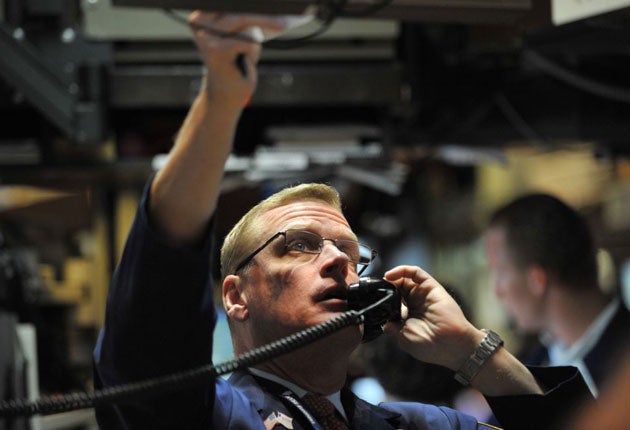I’ve no doubt we are in an asset bubble – but how long will it last?
Until it ends, all investors can do is to be alert, cautious, and wise, writes Hamish McRae

So how will the asset price bubble end? There is a short answer: badly. But that is a profoundly unhelpful one. We know all such bubbles eventually pop. What matters is how, why and when? And there the response is really very difficult to frame.
But first, let’s accept that there is indeed a bubble – that some asset prices have been buoyed up by speculation and are at unsustainable levels. It is not a universal bubble in the sense that not all of the things that people put money into are overpriced. UK shares remain, on most valuations, around their long-term averages.
The FTSE 100 index has a dividend yield of more than 3 per cent, and that has been artificially depressed by the ban on bank dividends. UK homes are at record levels but there is solid demand for larger homes. Prices may be historically high in relation to people’s incomes, but history has also taught us that while prices may fall for a few years they will eventually recover.
On the other hand, all fixed interest securities look way out of line. On the continent, 10-year German government securities yield minus 0.5 per cent – you pay money to hold them. Here, 10-year gilts offer 0.5 per cent interest. So what will UK inflation be over the next decade? I hardly think it will be only 0.5 per cent a year, so holders lose money in real terms. This makes no sense at all. Interest rates must go up when inflation returns, and bond prices, which move inversely to interest rates, must fall.
Look across the Atlantic to the US, and bubble territory becomes even more obvious. Shares are at or around all-time highs, which may be fine for solid successful companies, but the high-tech look way out of line. Tesla cannot rationally be the most valuable car company in the world, worth more than the next half-dozen put together. It builds only 500,000 cars a year and only just made a profit in its recent results.
The Reddit-driven frenzy on Wall Street is a great fight-back of small investors against the power of Wall Street. But you can salute that and still fear that too many of those small investors will end up losing their shirts.
So let’s accept there is an asset bubble. Now the “how, why and when” questions.
The “how?” is easy. We know that there is always a moment when there is a strange collective decision by investors that maybe they have done well enough and it is time to lock in their winnings. Long-term investors will ride through, maybe reducing their holdings of the more risky assets so that they can buy back later more cheaply. But short-term ones, or rather enough of them to move the market, will decide the fun is over and that it’s time to think of something else.
This happens time and time again for the mood swings seem to be embedded in human nature. It is why markets have periodic booms followed by busts, have done since at least ancient Roman times, and will go on doing so far into the future.
Why? The answer nearly always is because credit is tightened. For some reason or other banks start cutting back on loans, so it is harder to get credit. Or interest rates go up, so credit is more expensive. At the moment there is nearly free money. The best mortgage rates in the UK are around 1 per cent to 1.3 per cent for up to five years – below expected inflation. The Bank of England has even started talking about negative interest rates. I don’t think that will happen and if it did it would not mean home-buyers would get them. But the very idea shows how ludicrously cheap money has become.
If central banks spray money around the world it has to go somewhere. The answer has been its has gone into asset prices. That is not to criticise their actions as such, though I think negative rates are self-defeating. In the current emergency the banks had to do everything they could to keep the economies moving. It is simply to point out that the policy has created asset bubbles that will eventually pop.
And when? The answer there is that it will happen when interest rates start to rise in earnest, which in turn will depend on the pace of recovery and the trends of inflation. On that, I am afraid it is guesswork. As a general rule big shifts always take longer than you would expect to occur, and then happen more violently when they do. It would be grand to be able to say more, but impossible to do so.
I cannot see this going on for more than a couple of years, but maybe only months. Meanwhile all investors can do is to be alert, cautious, and wise. Alas, that is not very easy either.



Join our commenting forum
Join thought-provoking conversations, follow other Independent readers and see their replies
Comments